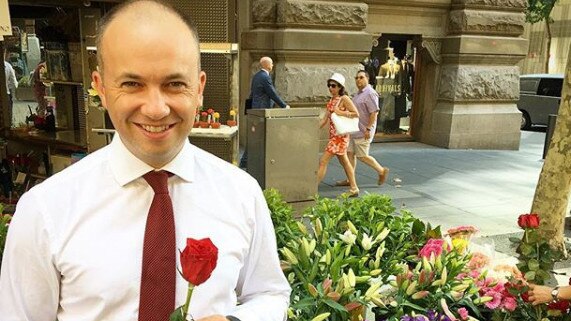NSW takes axe to red tape, useless licences
The NSW government is poised to tear up reams of archaic and unnecessary regulations in a bid to boost competition.

The NSW government is poised to tear up reams of archaic and unnecessary regulations — potentially freeing interior decorators and hairdressers from licensing requirements — in a bid to boost competition in the nation’s biggest state.
Minister for Innovation and Better Regulation Matthew Kean has asked more than 100 businesses, think-tanks and trade organisations to single out “unnecessary regulatory burdens” and compliance costs. “In some lines of business new technology and firms like TripAdvisor and Facebook have made licensing redundant,” Mr Kean said.
His ministry is responsible for licensing over 120 occupations from tow truck drivers and conveyancers to tattoo parlour operators and pawnbrokers. “Decorators, pavers, hairdressers, even cleaners need licences,” he noted.
“The modern global marketplace, World Wide Web and digitisation of processes and procedures provides opportunities to achieve desired public policy outcomes without restoring to traditional regulatory responses,” the letter said.
In NSW, hairdressers must complete a two-year course costing almost $12,000 to satisfy the state’s licence requirements.
Not-for-profit organisations have to provide multiple, sometimes overlapping reports to the Fair Trading department and the Australian Charities and Not for Profit Commission.
“I welcome suggestions about how necessary protections can be achieved other than through traditional regulations,” the Minister wrote in a letter sent this week.
Mr Kean told The Australian yesterday that obsolete legislation dealing with the liability for damage caused to guests’ horses at inns was still on the books, along with laws from the late 1940s allowing the state to requisition and ration goods if necessary.
“The best way to force prices down is to increase competition and reduce cost,” Mr Kean said.
Economists in the US have pinned some of the blame for falling rates of productivity growth and higher prices on the spread of occupational licensing. Economist Morris Kleiner, at the University of Minnesota, pointed out that almost 30 per cent of jobs in the US — from carpenters and accountants to florists, dance teachers and interior designers — now required an occupational licence, up from 5 per cent in the 1950s.
The Productivity Commission and the federal government’s largely ignored Harper review into competition also called for greater scrutiny of the case of occupational licences and better co-ordination across states where they are necessary.
Dozens of NSW state public servants are employed to enforce and check occupational licensees. “I’d prefer these resources to be better directed,” Mr Kean said.
He added that his letter reflected Premier Gladys Berijiklian’s push to make NSW the “easiest state in which to start and run a business”.
Responses are due before the end of the month.




To join the conversation, please log in. Don't have an account? Register
Join the conversation, you are commenting as Logout